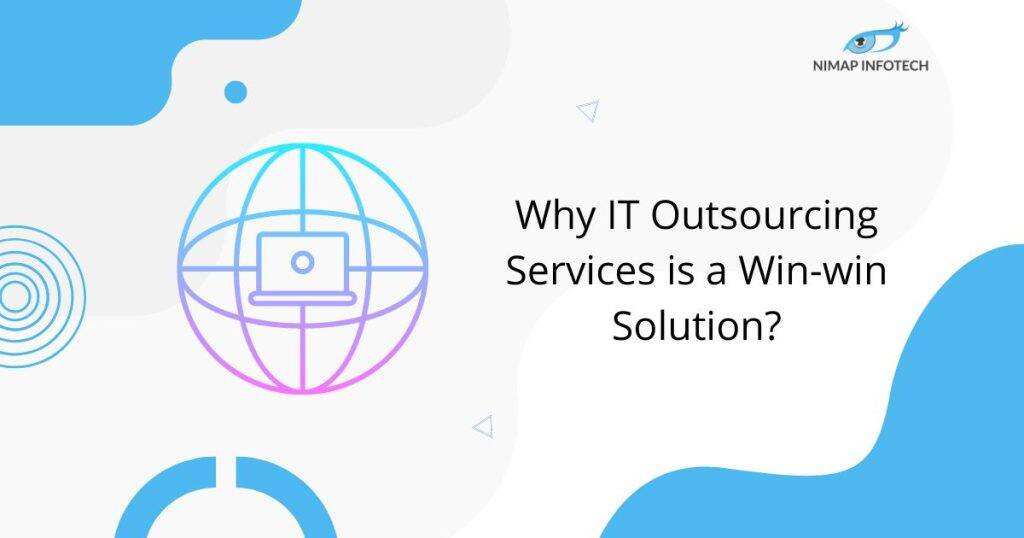“.Net vs Java” is a widely debated topic in the world of software development. These two programming languages are both strong and popular that have their own unique set of features, benefits, and limitations. .Net, developed by Microsoft, is a platform for building desktop, mobile, web and cloud-based applications, while Java, developed by Sun Microsystems (now owned by Oracle), is a general-purpose programming language widely used for developing enterprise applications. The choice between .Net and Java ultimately depends on your unique requirements and objectives as a developer or organisation. You can make a well-informed decision by reading this blog’s analysis of the differences and similarities between these two technologies.
What is .NET?
In order to connect data, people, systems, and devices through software, Microsoft developed the.NET framework. Users can share and use their information across numerous websites, applications, and computers more easily thanks to the Internet. Additionally, the.NET programming model gives programmers the ability to create applications quickly by combining various pieces of software into a single package. Microsoft Visual Studio.NET, for instance, is a component of the.NET programming model.
What is Java?
Sun Microsystems first introduced Java, a programming language and computing platform, in 1995. It has grown from its modest beginnings to power a significant portion of the digital world of today by offering the solid foundation upon which numerous services and applications are developed. Java is still used in cutting-edge products and digital services that are being developed for the future.
Key Differences Between .NET and Java
Compilation:
- Mix proportions, both scenarios generate intermediate representations, which are then handled by a runtime environment (make a valuable contribution for Java and MSLI code for.NET).
- While JIT (just-in-time) processing of the original code/bytecode to assembly language occurs in .NET at the procedure level, it occurs at the standard level in Java.
Environment For Development:
- There are many third-party IDEs (Integrated Resource Environments) for Java, including Eclipse, NetBeans, and IntelliJ IDEA, but there is only Visual Studio Code for.NET.
Coding Quickness:
- Although Java offers a variety of threads to simplify processing and handling of command sequences, .NET continues to lead in terms of coding performance.
Performance:
- Despite having a number of speed-enhancing features, Java is still slower than .NET, which uses natively developed languages like C# and C++.
- But compared to Java, they are both quicker and take up less space.
Scalability:
- Both platforms are among the most dependable once the service has been finally deployed.
- Because of this, both JAVA and.NET are frequently used to design intricate, extensive corporate systems.
IDE:
- Talking about the Java IDE or software environment, it consists of a code editor, compiler, and debugger.
- Eclipse, IntelliJ Idea, Oracle NetBeans, and apart from this, in order to make writing and testing of the code easier, there is an Oracle Jdeveloper that is specifically designed for this purpose. These are the available IDEs for Java. They are also provided with inbuilt plugins and auto-fill options. With the help of which Java’s flexibility could be a boost as well as offers scope for innovation.
- On the other hand, the .Net platform is available with Visual Studio IDE or software environment that helps in editing, compiling, and run-time customization for the behaviour of APIs.
- All of these provide the help of making use of library macros. Apart from this, there is no need for developers and programmers to evaluate the IDEs and other tools in advance.
Integrated Development Environment:
- IDEs are advantageous to developers because they aid in coding, debugging, reporting, and diagnostics.
- For Java, there are numerous IDEs. However, the four most widely used are Eclipse, Oracle NetBeans, IntelliJ Idea, and Oracle developer.
- However,.NET comes with a built-in Visual Studio that has language-specific features.
- Developers do not need to choose from a large selection of IDEs because software already includes everything they require.
Ease of Learning:
- Java and .NET are quite similar, making them both fairly easy to comprehend and use.
- However, Java offers more knowledge and resources for learning due to the industry’s influence and extensive history of development.
- Particularly.NET and.NET Core are relatively new platforms that have not yet attained the status of being well-known.
Supported Languages:
- Many software applications can be supported by Java and.NET.
- As a Full-Stack Developer, you might use JavaScript, Scala, Python, and Clojure; as a .NET development company, you might use F#, VB.NET, and C++.
- When creating business applications, working with specific other important languages like F# and C# gives you more options.
Security:
- Both platforms offer privacy protection. They impose a sandboxed execution environment and permit password protection.
- For a long time, Java had security flaws, but these issues have been fixed, and the program now has additional security measures in place.
- .NET was once considered to be secure due to the fact that it is a closed-source system. This is no longer the case, though.
Language Support:
- One of the major importance as well as the pivotal feature of Java is that it shares a single language across different platforms. But still, the programs written using this language is able to work independently across different OS types. Java is fully capable and is able to support languages like Python, Ruby, Groovy, Scala, and Kotlin.
- On the other hand, .Net framework provides support for languages that are useful in backend development as well as web services, such as C# and C++. Presently it supports about 20 different languages. With the help of this feature, you can program in any language of your choices such as Vb.NET, C # .NET, Perl, and many more. But still, it is very useful for generating a particular structure of code for the Windows platform only.
- So, it could be rightly said that .NET supports a multi-programming environment. On the other side, java is based on a single programming language that is helpful in supporting multiple operating systems.
Also Read: How to Hire .Net Developer From India
Where to use Java?
One of the most widely used scripting languages today is Java. For the majority of back-end construction projects, including big data and Mobile programming, it serves as the server-side platform. Java is also widely used in computational analysis, gaming, and mobile and web computing.
Where to use .Net?
A cross-platform development platform with public, open-source software,.NET enables the creation of a wide variety of applications. You can create for the internet of things, mobile, laptop, and entertainment.
How to choose between .Net vs Java?
The availability of both of these technologies should be considered when making a decision. In the market, there are many Java developers but finding a .net developer can be a bit difficult. You should also take into consideration the infrastructure you have available to support the website or app development.
How To Select The Right Technology For Your Project?
Each business experience is unique in terms of targeted user engagement, functionality, and end goals. To identify which software will work best for the organisation, each crucial component must be assessed. Apart from that, it primarily depends on the skills and knowledge of the creators.
Also Read: Advantages of Java & Disadvantages
How Can We Help You?
The information shown here is quite helpful for people who are thinking about building an entrepreneurship software system. Nevertheless, without significant practical expertise, such solutions run the risk of remaining wild conjectures. When it comes to technical proficiency, Java and .NET are almost equally suitable for business activities.
You can regain control of the situation with the aid of qualified IT consulting. For this reason, we offer IT staff augmentation, and assistance with custom software development to help our clients distinguish between their existing and potential prejudices. You can hire .net developers or hire Java developers from us within 1 hour. To know more about our services you can mail us at enquiry@nimapifotech.com. Hope you like this blog on .Net vs Java. Do check out our other blogs.
Author
-

With 14+ years in IT and entrepreneurship, I co-founded Nimap Infotech, a digital transformation company that has delivered 1200+ projects and built a team of 400+ engineers. I’ve also led mobile development teams at Accenture India and IBM Apple Garage and developed a network of 7k+ iOS and Android developers. As an Angel Investor, tech advisor, and mentor, I actively engage with the startup ecosystem.
View all posts








